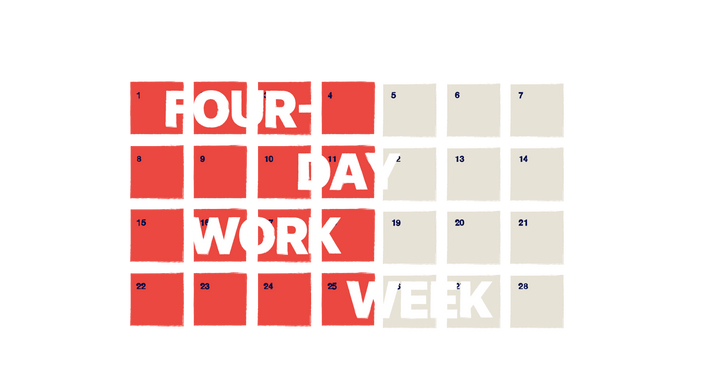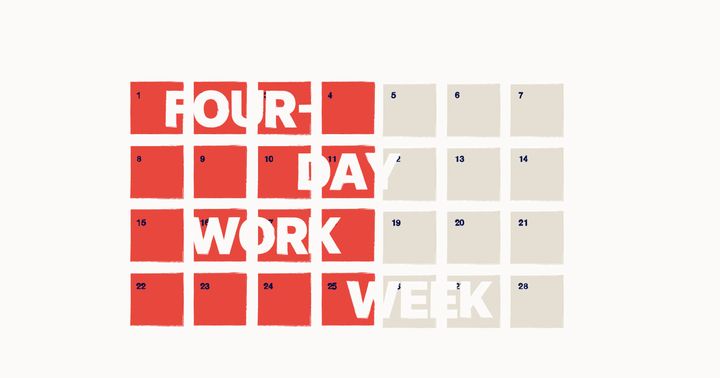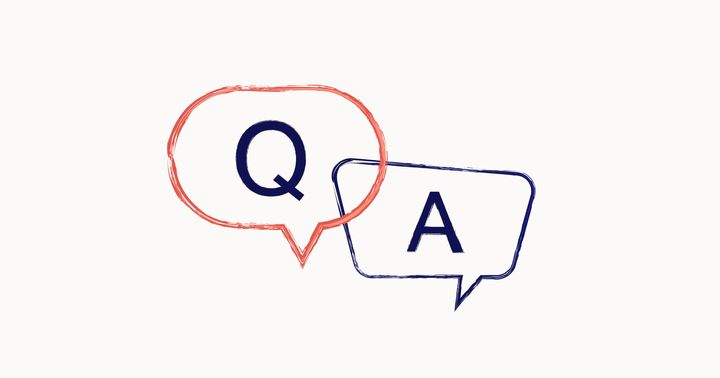Podcast: What do we need to change before we reach a universal four-day workweek?
Dr Alex Soojung-Kim Pang talks with Heatherly Bucher about four-day workweeks, how we can all work less, and what obstacles we still need to overcome before society adopts a universal four-day workweek.
The full transcript can be found below:
Listen to the podcast
The podcast is available on Anchor, Spotify, Apple Music, Amazon Music, and Google Podcasts, as well as via the web link.
Transcript
Alice Corner: Hello I’m Alice Corner, producer of Work Reimagined: A Conscious Culture Podcast. In today’s episode Heatherly Bucher, Executive Director of Conscious Culture, talks to Alex Pang, author and futurist and asks him the one big question: what is stopping us as a society from working less? And what do we need to change before we reach a universal four-day workweek?
Alex Pang: I’m Alex Pang, I’m the author of the books Shorter and Rest and global programs manager at Four Day week global and my favorite thing outside of work is probably hanging out with my dogs.
AC: This is Work Reimagined.
Heatherly Bucher: Today, we have Dr. Alex Soojung-Kim Pang with us. He is the author of Shorter: How Working Less Will Revolutionize the Way Your Company Gets Things Done, Rest: Why You Get More Done When You Work Less, and The Distraction Addiction. Dr. Pang is the founder of the company Strategy & Rest.
His writings and opinions are quoted in major publications, including the Financial Times, the New York Times, the Washington Post, and The Guardian. He is also a regular guest on podcasts and radio shows like BBC’s Business Daily and NPR’s Marketplace. And, this year, he has joined 4DayWeek as Global Programs and Development Manager.
4DayWeek is a not-for-profit community established by Andrew Barnes and Charlotte Lockhart to provide a platform for like-minded people who are interested in supporting the idea of the 4 day work week as a part of the future of work. Alex, welcome to Work, Reimagined.
AP: Well thanks very much Heatherly, it’s great to be with you
HB: So much of your work centers around reimagining work to be better for people whilst still delivering on business, which is what we here at Conscious Culture are committed to do as well. In particular you’ve researched and written extensively about challenging, as you call it, the workshop of overwork or those five or six day 40, 50, 60 plus hours a week structure. How would our lives change if we could achieve a universal shift where we all worked less and lived more?
AP: That’s a really terrific question. When you revise those things, when you kind of redesign them, what you end up with is better work and better lives and often longer, more creative, more sustainable lives.
In Rest I talk about people like Nobel Prize winners and famous authors and composers who often early in their lives were very much driven by kind of romantic ideas about how creative people work. You know you’d get super inspired and you spend huge amounts of time at, whether it’s the lab bench or keyboard or blackboard working away in this all consuming fit of passion but who at a certain point discovered that this really is not very sustainable, and discover that by working in steadier ways, by thinking more about how they work, and in particular layering periods of really deep focused work of several hours a day with periods of what I call deliberate rest - exercise, time for a hobby, walks or naps; that sort of thing, they’re able to do even better work than they had when they were younger. Work with greater output or greater productivity and have more sustainable longer creative lives.
And so I think that that is the kind of life that we could, you know that is attainable to all of us if first of all we recognize its value, if we recognize the value of rest and the value of working together in order to make it available to everybody.
HB: Such an attractive concept right, this universal idea of shifting like you said to where we have valuable work, but longer more fulfilling work lives. I’d love to kinda delve into this about what it looks like across industries.
In your book Shorter you interview companies that have obviously decided to redesign the structure of work, it’s quite a few and they don’t all implement shorter workweeks in the same way. Yet it’s daunting to think of the change needed to move to a universal concept of working less and living more across industries. So what does a universal four-day workweek mean for employers, for society, for governments in practice? What do we need to do make this happen and not be for the elite, you know salaried upper socioeconomic part of the world?
AP: There is always a danger of things like the shorter workweek becoming in a sense captured by the already fortunate. Lots of companies that have already implemented four-day weeks or other kinds of shorter weeks are not web design firms or financial services, or advertising agencies but rather places that have hourly work, that are blue collar establishments rather than white collar and they see exactly the same kinds of benefits we see in places that have really cool dot com names.
But the reality is that the shorter workweek delivers benefits both to workers and in workplaces even if you are a care worker, a barista, a sous chef, or you’re working in pest control or construction. Indeed I think that the only places where it really has trouble taking hold is in industries that are highly seasonal; so construction companies in Montana or Canada where you work a lot during the summer and there’s not a lot of building that happens when there’s two feet of snow on the ground.
Moving to a four-day week could be kinda tough there, but otherwise there’s hardly any kind of work these days if it’s not seasonal or weather dependent that can’t benefit from this kind of time reduction.
As for governments, first off there are a few governments who have put a shorter workweek into practice in their own public sectors. Iceland did it last year, the United Arab Emirates started it in, just a couple of months ago, this past January, and in both of those cases this is extending across a range of professions from firefighters to tax collectors to diplomats. I think we’ll also learn a lot more about the particular ways in which governments can help assist the transition to a shorter workweek.
So far, the movement is largely been driven by far sighted entrepreneurs, founders, CEOs… governments haven’t done a whole lot to push that along so far, and we’re just now starting to get our heads around whether a proposal like Mark Takano’s to simply shorten the length of the workweek from 40 hours to 32, or whether positive incentives in the way of tax abatements or relief on payroll taxes, or whether other kinds of policy measures would encourage companies to make this move, give them the ability to figure out how to do so with a minimum of unintended consequences.
But the fact is at this stage in 2022, the good news is that the debate around the four-day week is no longer one about whether this is a completely insane idea that would kill the economy or not, but rather the debate is really around how we go about doing it.
HB: You wrote about a paradox that technology has brought us, and I would love you to read this excerpt from Shorter where you touch on the paradox of technology
**AP: “**We’re all familiar with this paradox. Mobile devices that were supposed to allow us to work anywhere and give us greater flexibility instead create the expectation that we’ll work everywhere… this has contributed to a world in which, as Virginia Tech professor William Becker put it, ‘flexible work boundaries’ often turn into ‘work without boundaries.’”
HB: So work without boundaries, our listeners are most likely nodding their heads most of us are familiar with that pull to respond instantly to a text or a ding on our phone or tablet, I admit that I often have my phone by my bed and I wake up and there are too many days where I get on slack before my eyes are really even fully open.
Academic, medical, sociological researchers have been studying this imperative we all feel, even calling it a crisis of immediacy, and yet technology can also be a critical part of the solution of removing wasted time from the workday or as you talk about: designing time. So in talking with the companies as you’ve done your research, what different ways do companies find to use technology for good not evil as they look to shorten work.
AP: That’s a great question and I think technology plays a really important part in helping companies move to four-day weeks, but a big part of that technology story is using existing technology differently or in ways that are healthier rather than ways that are distracting or destructive.
The first thing is that there’s a whole bunch of research that tells us that the four-day week is already here, it’s just buried under two or three hours of lost productivity per day to meetings that are too long, to poorly implemented technologies that take us off track to technologies that are designed to distract us and capture and resell our attention and to other kinds of distractions in open offices which have turned in to carnivals of attention grabbing.
The bad news is that a lot of our relatively reflexive use of technology has contributed to a problem of distraction at work and made us less efficient. The good news is that offers a whole bunch of things, a whole bunch of targets we can sorta go after in order to make working time more effective and then give that time back to people.
The first thing is better practices, right? So encouraging or giving people permission to do things like check their email twice a day rather than have their inbox open constantly and always being in a reactive mode. It can also mean different boundaries on the use of things like Slack in the office. So Polar, which does advertising software - start up, reported that in the first year after moving to a four-day week they went from having something like 200 active slack channels to 30 and the number of messages sent back and forth in Slack went down by 50%. You know that meant fewer conversations to manage and keep track of, and also less traffic to have to oversee, and process, and incorporate into your work time.
I think also having different norms around when or how you use technology is important. Building on the idea of ring fencing, lots of companies are pretty good about discouraging use out of hours - whether that is email plugins that hold outgoing messages until the next morning, or whether it’s simply having social norms that say that you do not have to answer messages that come in unless they’re absolute emergencies or the little thing in your signature line that tells the world you work Mondays to Thursdays and that you will get to a message as soon as you can within those times, all that stuff goes to promoting a healthier attitude towards technology that encourages us to think of technology as something that we use, rather than something that we have to constantly respond to.
HB: So Shorter was published in 2020 right as the pandemic began, in fact I read - I’m not sure if it was in the book Shorter or it might have been in the follow on, the ‘22 report on the four-day workweek, where you did one book store event for Shorter before everything was canceled at the beginning of 2020.
AP: I got to do one reading in Mountain View and even then the bookstore was thinking “you know, we think we’re going to close” but then that was the extent of my live readings, and then right after that everything shut down and I started to become familiar with doing events on Zoom instead.
HB: Didn’t we all! So now, two years later, so this year you released a 2022 report on the four-day workweek that really is labeled as a report on the four-day workweek I have to say, understandably to me it read as an update to Shorter, and you listed new trends that you see emerging now, including companies forging new cultures; and I love if you could read the summary passage that you wrote there
AP: Sure. “Companies adopt shorter workweeks to solve pressing problems with burnout, recruitment and retention, and work-life balance. But they’re also rejecting cultural ideals that treat overwork as a badge of honor, and are crafting new ways of thinking about time and work, what ideal careers look like, and how to improve work-life balance.” End quote.
HB: Love it. So overwork as a badge of honor. I can relate.
AP: Can’t we all!
HB: Can’t we all! And we’ve all been working and operating in a crisis mode the last two years as you discuss in this report, and a lot of adaptations by companies just to survive the last two years. So there’s a great hope of reforming work, making it better in many ways, but there’s also a risk of companies reverting back, or shifting focus away from the culture work as people go back to offices, return to public spaces, right, as the pandemic… as we see a shift, and we’re able to open up more.
But yet, we still have very real challenges for businesses today, we have continued supply chain disruptions for every discrete manufacturer, we have global inflationary practices and pressures going on, we have geopolitical unrest in one if not several continents right now that threatens business outcomes.
So what arguments do you make for company leaders to stay committed to reimagining what work can be and pushing the edges, despite you know the end of the pandemic, the return to office potential, and then some very real external business challenges that they don’t have a lot of control over?
AP: You know, I think Heatherly that the last two years are not just the strangest years of our lives, they may also be the most normal years of the rest of our lives. There is, I think, a definite risk that we are not going to go back to normal, from here on out with climate change, with pandemics, with global political instability, it just is going to get crazier.
Now you might think this is an argument for not moving to a four-day week, that we need all hands on deck, you know revoke whatever rhetorical thing you want and say in this kind of super interdependent world of great uncertainty people need to spend even more time at the office. I would argue a couple of things. Number one: that the pandemic has taught us that we can change the way that we work faster and more profoundly than we ever thought possible.
I’ve had a CEO tell me in January 2020 ‘work from home’ was the hill I would die on, I absolutely knew we could never ever do it, and my people proved me wrong in about three weeks. And I don’t think people are going to forget that experience, because the way things were - the pandemic also revealed - were not that great for a lot of people, and we have an opportunity to make work better for everybody.
I think also, that someone recently asked me ‘do I think America is ready for a four-day week’ and I think the answer is that Americans clearly are ready for a four-day week, it is American companies or executives who need to be pulled along.
HB: So, this closes out our time with Dr Alex Soojung-Kim Pang, futurist, author, researcher on people, technology and the worlds we make. As a reminder you can find Alex’s books all three including his latest Shorter at major distributors and bookstores including Amazon and Barnes and Noble in print, digital, and audio book format that Alex himself read. You can find more information about Alex on our website conscious.org.
Alex, thank you so much for joining us I always love to hear from authors what they’re reading and recommend. So what book, besides yours, should we all be reading right now and why?
AP: The new book by Catherine Price called The Power of Fun is a book that I discovered not long ago and it is a bit like Rest in that it is kind of a science based dive into something that seems super familiar and maybe a little childish or trivial, but turns out to be incredibly important for our intellectual development, our development as people for the quality of our lives, and I think that Catherine does a great job in explaining why we should take fun seriously and why we should bring more of it into our daily lives. So that’s what I’d recommend: Catherine Price’s Power of Fun.
AC: Find out more at conscious.org




